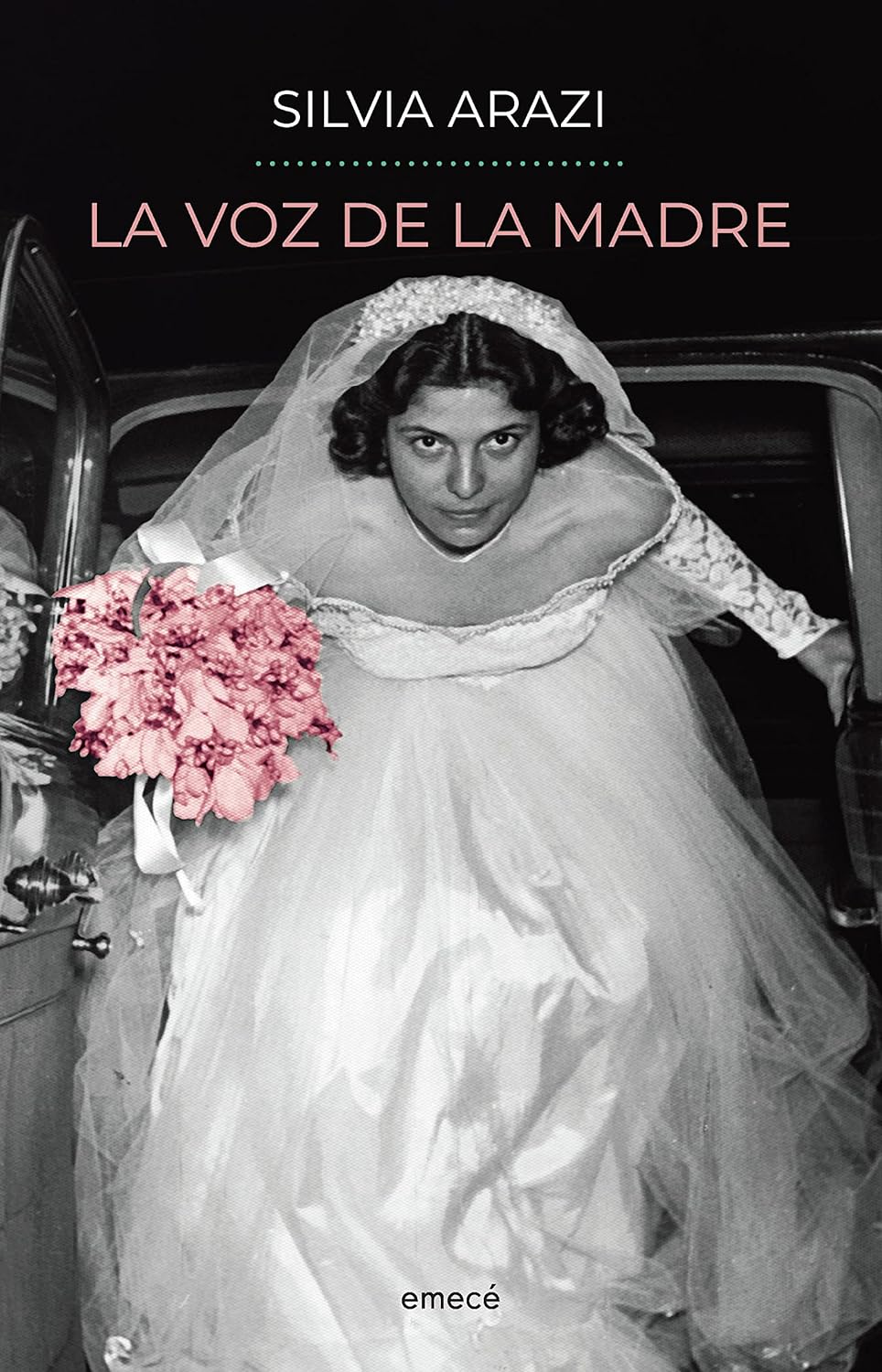
La voz de la madre (英文: A Mother's Voice)
母親的聲音
內容介紹
「希薇亞.阿拉齊是拉丁美洲最傑出的故事敘述者之一。」— 塞凡提斯獎得主奧古斯托.羅亞.巴斯托斯(Augusto Roa Bastos)
「我緩慢書寫而成的一頁一頁文字,在沉默之中慢慢醞釀,只希望或許可以記住那個聲音。」這是一本關於身為「文字的囚徒」的女兒,用唯一的手段—寫作—來應對失去母親的重大人生課題。
「那是一個溫暖、明亮、萬里無雲的早晨,而我將這樣的早晨當作一個新年的好預兆。當我寫下最後幾個字的時候,我的電話響了,是我妹妹,她告訴我母親過世了。」
蘿西塔是一個美麗、溫柔又哀傷的女人,她的晚年是一段漫長的衰敗,而她的女兒親眼目睹了整個痛苦的過程。當母親過世的時候,敘述者必須為母親寫下她的故事。這本書描繪了蘿西塔的過去,寫她怎麼遇到丈夫、怎麼建立一個家庭。對那個世代的女性來說,這是一種邊緣化與失去話語的過程,但這個世代的女性仍在愛與希望的環境中扶養他們的女兒,讓女兒們能為自己發聲。
如同照著鏡子,阿拉齊從與母親的回憶中照映出她自己的童年、她的青春、她的初戀、對生孩子缺失的慾望、與父親緊張的關係。她以零星片斷小說的形式,在第一人稱與第三人稱之間搖擺不定的切換,探索自己的回憶,讓她的母親在這些字句間獲得永生,也揭示對過去的敘述與我們的身分認同之間密不可分的關係。
不可避免地寫到家人時,阿拉齊也探討感知、記憶與真相的本質:「潛入回憶中就像潛入黑夜的深海中,將被魚群、水草、海怪環繞。」作者對文字、語言的審視反映出她的哀悼過程,並在書寫的過程中給予了母親形體與聲音。《一位母親的聲音》不只向深愛的母親致敬,更是一部文學瑰寶,以及一個療育的過程。
作者介紹

希薇亞.阿拉齊(Silvia Arazi)是一位阿根廷小說家、短篇小說家、詩人、演員和歌手。她出演過許多戲劇、電影、喜劇、音樂劇和電視節目。作為一名作家,她曾在Abelardo Castillo工作室工作多年。1998 年,她憑藉短篇小說《Que temprano anochece》(《天黑得多早》,暫譯)獲得西班牙胡利奧.科塔薩爾短篇小說獎(Premio Julio Cortázar de Narrativa Breve)。她的小說《La maestra de canto》(《歌唱老師》,暫譯)被翻譯成德語和荷蘭語,並於2013 年由 Ariel Broitman 改編成電影。她還出版了詩集《Claudine y la casa de piedra y La medianera, una novelita haiku》(獲阿根廷國家藝術基金會二等獎)和兒童詩集《La familia Cubierto》。她最新出版的小說是《El niño de pocas palabras》(《少言寡語的孩子》,暫譯)和《La separación》(《分離》,暫譯)。她現居於阿根廷和烏拉圭。
書評
“A remarkable novel, rooted in the elusive evocation of the past without ever drowning in the sadness of loss... On the contrary, it leaves the reader with the feeling that whatever is lost does not vanish altogether but is a place that ruminates vaguely and abstractly in the least visited recesses of the mind. There is a way to that place, and that way is fiction.” Debret Viana, Página 12
“Arazi's writing is graceful: it subtly allows for tenderness but does not shy away from the pain; instead tackling it head on. [...] Even when she smiles, even when she sings, even when she strolls through the square with her mother or has a lively conversation with the manager of her building, underneath there is always a tear. A tear that glistens, that names and describes, in simple and precise words, something that in the beginning could not be named.” Mauricio Koch, Fundación La Balandra
“‘The pain is a blood clot. It is silence. It is a non-word.’ This fragment by Silvia Arazi sits on my chest and like a mussel, slow and precise, it digs down until it has rooted itself into my heart. It hurts, yes, but I can’t help but take pleasure in such beauty. A moving book. A gem.” Paula Castiglioni, Becult Magazine
“An intimate and poetic story that seeks to reconstruct the family memory and includes intense reflections on writing, the human voice and its power to reveal our most hidden thoughts.” Rocío Ibarlucía, La Capital Newspaper
“Silvia Arazi - an exceptional author who manages to penetrate the depths of the soul as if she were describing a Japanese landscape. When I read her, I constantly have the impression of being both a spectator and part of her stories. As a reader, she doesn’t demand commitment from me, she doesn’t ask me to take her side, she respects my rhythm and, when I least expect it, I am inside her words.” Luciano Luterau, Infobae
“In this intimate and intimate novel, everything is expressed with an exquisite cadence, with a prose that caresses and almost whispers, so characteristic of Silvia Arazi’s literature. As if she were singing an a cappella song with her delicate voice. Because it is also about the voice. To hear that voice, to listen to it, to make sure it is not lost forever, to treasure it.” Silvia Renee Surer, Perfil Newspaper
“The preoccupation with what the words say - worthy of a disciple of Abelardo Castillo - puts this novel in the category of an essay, and adds reflections that flesh out the facts being narrated.” Leticia Martin, Polvo Magazine
“A Mother’s Voice deals with a sensitive subject matter: the history, the progressive deterioration and, finally, the pain of the absence of her mother, Rosita. A text that makes use of the devices of fiction and manages to get to the core of a pain as real and lacerating as the loss of a loved one.” Monica Lopez Ocon, Tiempo Argentino
